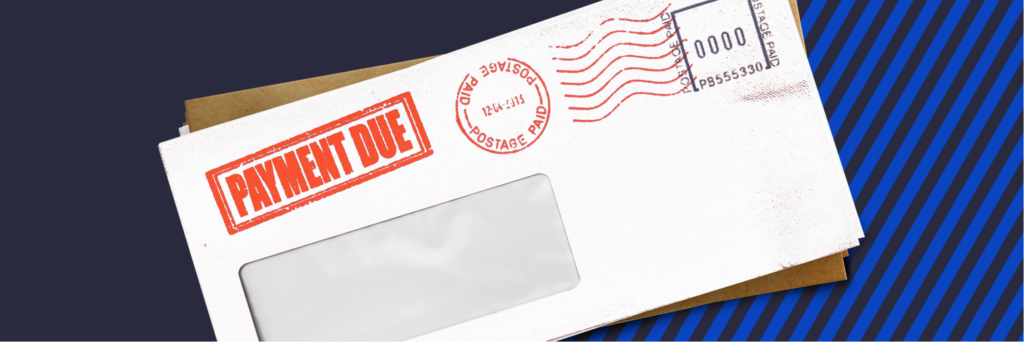Do you ever feel guilt or remorse after shopping? Do you have dozens of brand new but unused items laying around your home? While it’s easy to make light of our own compulsive habits, it’s also a way to ignore signs of a larger problem. In this case, shopping can be an addiction that leads to a series of financial issues. In fact, a study by Stanford University in the American Journal of Psychiatry found six percent of women and more than five percent of men are compulsive shoppers.
With abundant Internet access and a smartphone by our side at all times, this number is likely to keep growing. Considering that the average U.S. household debt stands at an alarming $38,000, getting a hold of your shopping habits is crucial. So, if you’re concerned you may be a shopaholic, review these seven warning signs and study up on the potential solutions.
Problem #1: You shop to make to make yourself feel better.
Having shopping intertwined with emotion is one of the most common causes of compulsive buying. Whether it’s the feeling of a post-purchase rush or rewarding yourself for a minor victory, these connections can cloud your judgment and lead to unnecessary spending.
Solution: Replace shopping with a more positive activity. Going cold turkey on anything can be a struggle and often sets you up for future failure. Instead, boost your endorphins naturally with one of these activities like taking a group fitness class or savoring some chocolate. Something even as simple as a brisk walk can elevate your mood and help lessen your desire to buy.
Problem #2: You carry more credit and store cards than business cards.
Credit isn’t hard to come by these days. Stores constantly offer their credit card at the register, and with about 60 seconds of sign-up time online you can get approved for almost endless credit limits.
Solution: This country runs on credit, so it’s smart to have a carefully managed account or two. However, there’s no reason to carry balances across multiple cards. To curb impulsive online spending, start by deleting your stored credit card information from your favorite websites. The time it takes you to reenter the billing information each time will give you time to rethink that unnecessary purchase. You can also resort to more drastic measures such as only paying in cash or freezing problem cards in a block of ice.
Problem #3: You have no idea how much you owe nor dare to check your credit card statements.
Staring down debt is scary, and it’s much easier to promise yourself you’ll tackle that issue another day. But, the longer you wait, the worse it will get. There may be small issues you can resolve quickly that are costing you more and more each month.
Solution: Face your fear and go over your finances in detail. Having this information will help you prioritize and make smart decisions going forward.
Problem #4: Your closet is filled with items that still have the tags or have never been worn.
Accumulating clothing faster than you can wear it is a big red flag your purchasing behavior is impulsive.
Solution: Make sure you have a specific purpose when you buy. Sure that cardigan looks cute, but when will you actually wear it? A good principle to live by is the 24-hour rule. When you feel like you absolutely have to have something, sleep on it for 24 hours. If your desire is unwavering after waiting, it’s more likely your purchase is justified. However, most times you’ll find that you actually forget about the item.
Problem #5: You hide your new purchases from your significant other.
This is a sure sign somewhere deep down you feel like there’s something wrong with your shopping behaviors. Money disputes are one of the most common reasons relationships end, and deception is up there as well.
Solution: This solution is very dependent on your relationship. If you have to get all of your purchases approved, resentment is likely to creep in. Instead of having one person make all of the decisions, try shopping together. Where you may have hid purchases before, review them together post-purchase and it may help you realize you bought just to buy or spent way too much.
Problem #6: You spend every penny whether you need to or not.
Most of us have had times in our life where there was no other option but to live paycheck to paycheck. Often this becomes our regular habit, even after it’s no longer necessary.
Solution: Reign yourself in with attainable goals. When you make drastic changes, you’re likely to be uncomfortable and fight them. Start by saving a small amount each month or making a slightly larger payment on your debts. After you learn to accommodate this change, increase the amount a little more.
Problem #7: You are a sucker for sales.
Many people justify buying something they don’t really need because it’s on sale. If you jump on every email offer or pop into every store flashing a sale sign, it’s time to reevaluate your deal hunting strategy.
Solution: Identifying your triggers will help you eliminate them from your life. Unsubscribe from store e-newsletters, cancel snail mail catalogues by contacting Catalog Choice, and delete any flash sale or daily deal apps that push tempting pop-up notifications on your mobile device.
Written by Andrea Woroch. You can learn more about her at her website or follow her on Twitter or Facebook.




